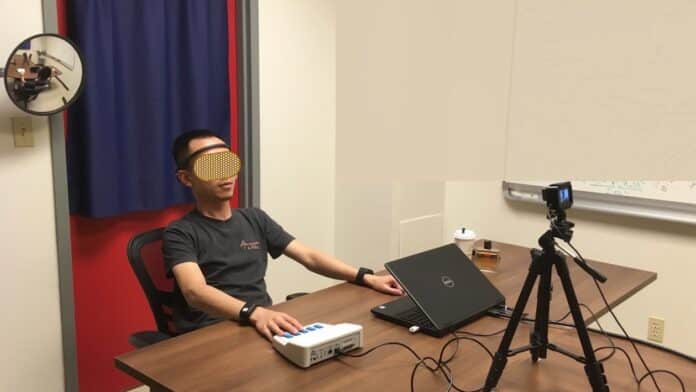Listening to music and drinking coffee can make our brain work better, especially when we need to focus and remember things. A study at NYU Tandon School of Engineering used a unique technology called MINDWATCH to figure this out.
MINDWATCH is like a brain detective. It looks at your brain signals using a fancy wristband and headband that can sense how your body reacts when you’re stressed or excited.
In the study, people wore these wristbands and headbands while they did tests. They did the tests while listening to music, sipping coffee, and smelling their favorite perfumes. Then, they did the same tests without these things.
The MINDWATCH technology showed that music and coffee changed how people’s brains worked. It puts them in a particular ‘mindset’ that could help them do better in memory tasks.
MINDWATCH looked at their brain waves and found that music and coffee made their brains more active, especially in a way that’s good for thinking. This change in brain activity is linked to better review. Smelling perfume helped, too, but more study is needed.
Faghih said, “The pandemic has impacted the mental well-being of many people across the globe. Now more than ever, there is a need to seamlessly monitor the negative impact of everyday stressors on one’s cognitive function.”
“Right now, MINDWATCH is still under development, but our eventual goal is to contribute to the technology that could allow any person to monitor their brain cognitive arousal in real-time, detecting moments of acute stress or cognitive disengagement, for example. At those times, MINDWATCH could ‘nudge’ a person towards simple and safe interventions — perhaps listening to music — to get themselves into a brain state where they feel better and perform job or school tasks more successfully.” she added.
In this study, people took a memory test called the ‘n-back test.’ They had to say whether the current thing they saw or heard was the same as the one they saw or heard ‘n’ items ago. They did a more manageable version with ‘n’ equal to 1 and a harder one with ‘n’ equal to 3.
They tried three types of music: one that made them feel energetic, one that was relaxing, and one created by a computer to match their taste. The vibrant music made them do better on the tests, especially the computer-generated music. However, more research is needed to be sure.
Drinking coffee helped a bit, but not as much as music, and smelling perfume helped the least.
People did the best on the more complex tests, which means these things might help more when you have to think harder.
The MINDWATCH team is still testing their technology to ensure it consistently works and to see if different methods can change how the brain works. Just because something works for some people doesn’t mean it works for everyone.
Everyday pleasures like music and coffee have the potential to enhance cognitive performance, as shown in this study. These simple activities can boost mental alertness, demonstrating the connection between enjoyment and improved cognitive functioning.
Journal reference:
- Fekri Azgomi, H., F. Branco, L.R., Amin, M.R. et al. Regulation of brain cognitive states through auditory, gustatory, and olfactory stimulation with wearable monitoring. Scientific Reports. DOI: 10.1038/s41598-023-37829-z.
